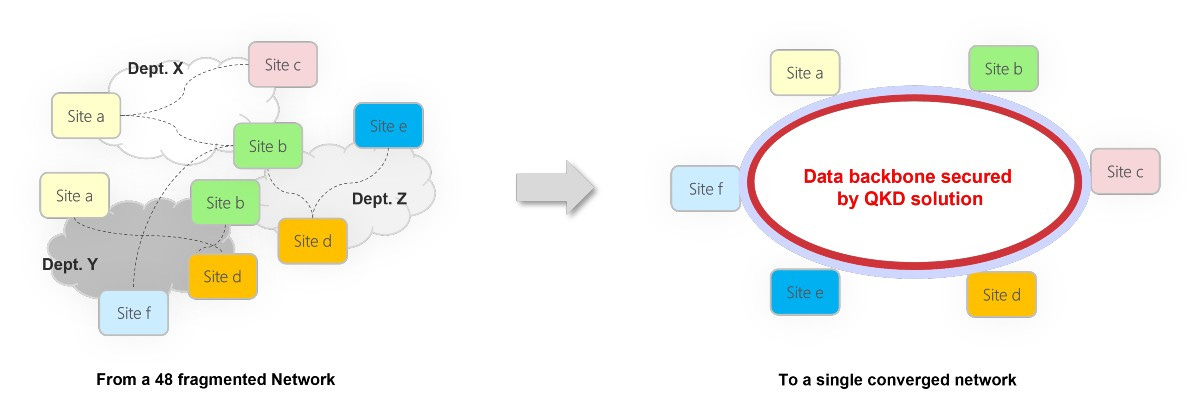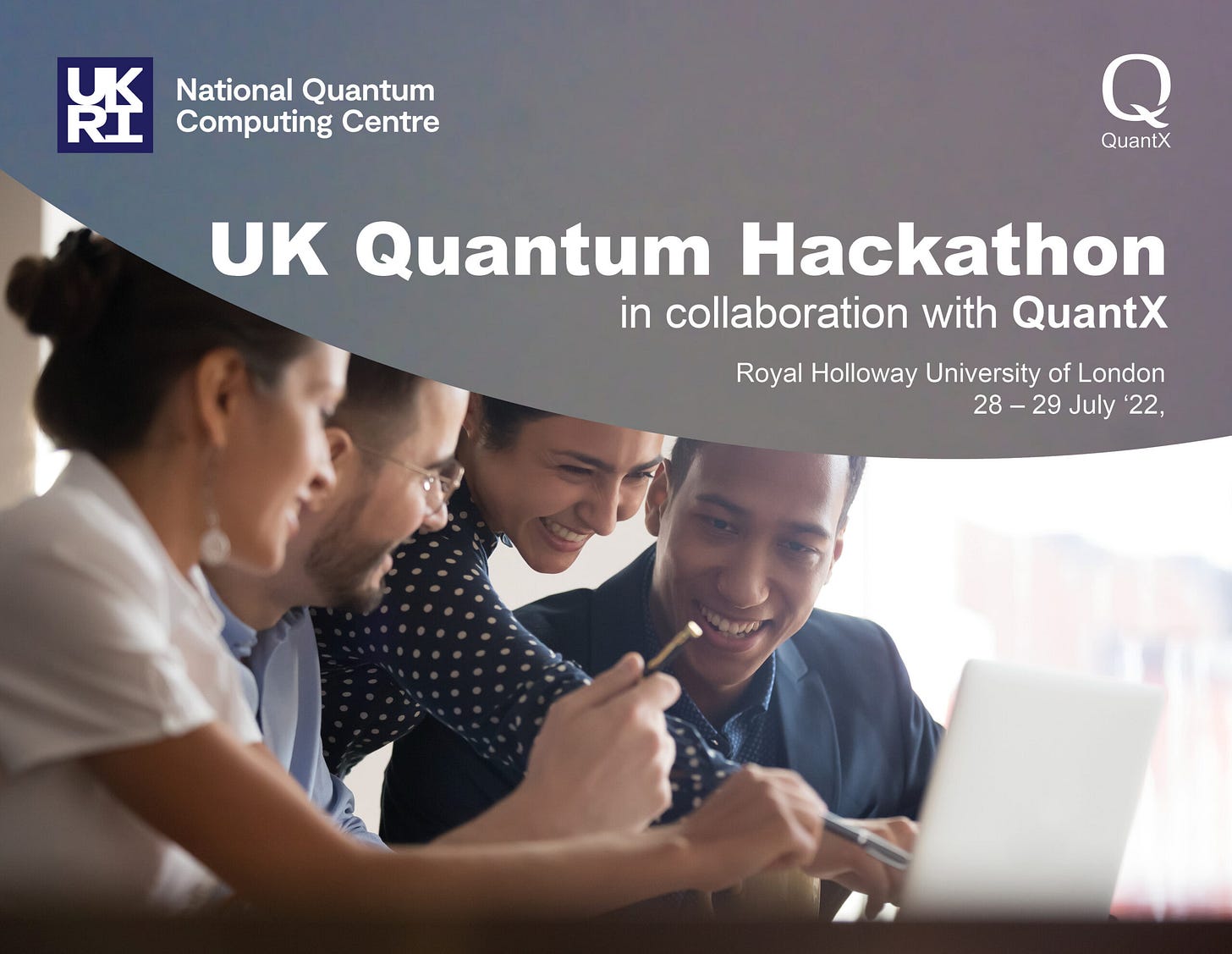According to a recent report from the World Economic Forum (State of Quantum Computing), government and business investments are reaching $35.5 billion globally.
In the last few months the quantum landscape have seen many events. Companies widening their reach to industries, nations are collaborating, governments are pushing the public funding opportunities. In the meanwhile researchers discovering new techniques towards building Noisy Intermediate-Scale Quantum (NISQ) computers, and developers bringing Quantum-Computing-as-a-service (QCaaS) to whole new level.
Quoting from the report:
The development of quantum computing technologies today is a global endeavour. All continents are home to companies and governments actively supporting the creation of new, quantum-powered computing solutions. Countries with leading quantum R&D clusters from around the globe have made strategic investments to capture part of the future quantum computing supply chain and create strategic and independent access to future capabilities.
- World Economic Forum
Although the technology is just getting away from its infancy out of the labs into the market, yet this didn’t stop the robust movements into shaping the global ecosystem. This issue of OneQuantum Libya Newsletter, provides the reader an overview of recent ecosystems developments, and scientific discoveries. In a way to motivate organizations that haven’t yet taken serious actions to adopt quantum technologies.
The provided news and updates of the 3rd quarter of this year 2022, will be covered in several issues of the newsletter. Each issue will be concerned with targeted readers spanning the following:
Governments, Initiatives, Funding
Scientists & Developers Corner
Technology & Enterprises
Quantum Technology Q&A
Developing the Libyan Quantum Community
I had the honour of writing about the development of the Libyan quantum community in the latest issue (click here) of the African Physics Newsletter (APN) under the American Physical Society (APS Physics) efforts.
This is considered as the first Libyan participation in the newsletter. All thanks to Prof. Mourad Telmini for his unlimited support and giving me this opportunity to show the world that African nations are striving not to lag behind the second quantum revolution.
You can review this month's October (click here) issue for further insights on the recent African quantum news and summaries of physics education and research across the continent.
Governments, Initiatives, Funding
Quantum in the CHIPS and Science Act of 2022 (click here)
This bill is about more than chips. It’s about science as well… It authorizes funding to boost our research and development funding… This increased research and development funding is going to ensure the United States leads the world in industries of the future, from quantum computing to artificial intelligence to advanced biotechnology.
–President Biden speech at signing of Chips and Science Act on August 9, 2022
Announcing the Commercial National Security Algorithm Suite 2.0 (click here).
NIST recently announced its standardization selections for post-quantum cryptography. Consequently, there are neither final standards nor Federal Information Processing Standard (FIPS)-validated implementations available at this time. NSA is announcing this selection of public-key algorithms to provide future NSS requirements so vendors may begin building toward these requirements, and so acquisition officials and NSS owners and operators will know what the requirements are.
China’s Origin Quantum Secures $148M Series B Funding Round (click here)
Origin Quantum, a quantum computing startup based in Hefei, China and founded in 2017 by Professor Guo Guoping and a team from the quantum information laboratory at the Chinese Academy of Sciences, has just closed a $148-million Series B (1 Billion Yuan) funding round.
IDQ and SK Broadband complete phase one of nationwide Korean QKD Network (click here)
With a total length of 800 kms, this Korean QKD network infrastructure secures the communication network of 48 government organizations across the country, which makes it the largest quantum cryptography network outside China.
UK Quantum Hackathon (click here)
The United Kingdom National Quantum Computing Center in collaboration with QuantX organised a quantum computing hackathon in the UK. The hackathon is part of the NQCC’s Quantum Readiness programme, aimed at exploration and awareness-raising for the current capabilities and limitations of quantum computing technology, as well as at nurturing the talent pipeline and convening stakeholders. The technical hackathon was also aimed at addressing the whole quantum computing value chain to demonstrate its ability to tackle real-world problems in a variety of sectors.
US Government (CISA): Prepare Now for Quantum Computers, Not When Hackers Use Them (click here)
If you're wondering when your company should start taking seriously the security problems that quantum computers pose, the answer is now, the US government says.
"Do not wait until the quantum computers are in use by our adversaries to act," the Cybersecurity and Infrastructure Security Agency said in a guide published back in August. "Early preparations will ensure a smooth migration to the post-quantum cryptography standard once it is available."
Free Quantum Computing Training Course Launched by the Linux Foundation & World Bank (click here).
SAN FRANCISCO – August 25, 2022 – The Linux Foundation, the nonprofit organization enabling mass innovation through open source, has released a new, free, online training course, Fundamentals of Quantum Computing, in partnership with the World Bank. The course provides an understanding on how quantum computing could be used for complex decision making far beyond current computer capabilities, as well as an understanding of the technological, governmental, and industrial implications as the technology further matures.
NASA Quantum Computer Mission Boldly Goes From Hilbert Space to Outer Space (click here)
Now, pioneering NASA quantum computer scientists plan to continue this legacy of scientific exploration to tap the inner reaches of quantum mechanics, work that could build the technologies that may propel humanity farther into space while also helping solve some closer-to-world problems, such as climate change and pollution control.
How JPMorgan Chase and Other Banks Plan to Use Quantum Computing (click here).
“We notice that if an organization would not do something in regards to the market proper now, and simply waits for quantum benefit to develop into a actuality, when quantum benefit turns into actual, it could be too late,” stated Marco Pistoia, managing director, distinguished engineer, head of worldwide expertise utilized analysis and head of quantum computing at JPMorgan Chase. “We wish to be prepared when quantum benefit turns into potential on the next degree.”
JPMorgan Hires Scientist Charles Lim to Help Protect Financial System From Quantum-Supremacy Threat (click here).
JPMorgan Chase has hired a Singapore-based quantum-computing expert to be the bank’s global head for quantum communications and cryptography, according to a memo obtained by CNBC.
Quantum Computing’s Threat to Cybersecurity — Winter Is Coming (click here)
Although the threat of quantum computing is still in the future, data stolen now could be saved until a time when quantum computing is available to break the encryption. That means some of the steps agencies can take now are the same tried and true steps security officers have advocated for years. The first one of those steps is taking an inventory of data and deciding how vulnerable it is.
Star Trek Is Not That Far Away.’ Grant Will Help Develop Cutting-edge Quantum Technology On Burlington Campus (click here)
Northeastern University’s Innovation Campus in Burlington, Massachusetts, is set to become the epicenter of cutting-edge quantum technology, thanks in part to a new grant.
Massachusetts Housing and Economic Development Secretary Mike Kennealy on Wednesday announced a $3.5 million grant to establish the Experiential Quantum Advancement Laboratories (EQUAL) at the Innovation Campus.
A Retrospective Post-Quantum Policy Problem (click here)
However, despite these efforts, policymakers have given little or no attention to what could be called a retrospective post-quantum problem. To wit—pre-quantum public-key encryption algorithms such as RSA have almost certainly been used to protect nearly all classified U.S. government messages since the 1970s, when the mathematics for public-key encryption were first discovered. A properly encrypted message is useless to anyone without the decryption key or the technology to discover that key, but even encrypted messages can be recorded for future analysis. Indeed, intelligence agencies have a habit of collecting information just in case it might be useful in the future, and there is no reason to suppose that these encrypted messages have not been recorded somewhere by some adversary government.
============================================================================
Sign up now for our Newsletter so that you will never miss out on quantum tech news, updates, events, and opportunities.
AbdulMalek Baitulmal | President | OneQuantum Libya
Let’s take a moment to get to know some of the Libyan landscapes;
Al-Truna Lake, Ubari, Southern of Libya
Al-Truna lake is called the red, in relation to the red color obtained from the fungi, salts and minerals found in the lake. It has 4 types of stagnant water, including sweet and sulfur. The material extracted from the lake is used in many local industries.









